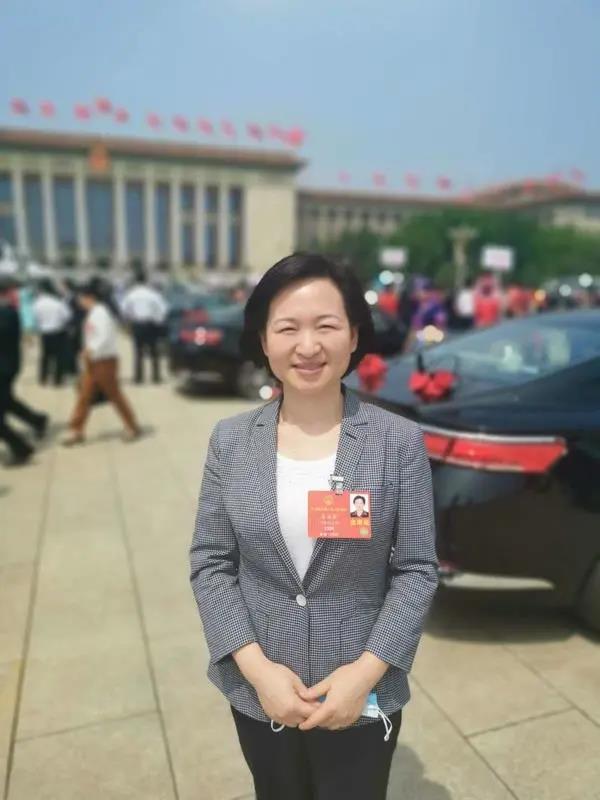 Editor’s Note: The third session of the 13th National Committee of the Chinese People's Political Consultative Conference (CPPCC) and the third session of the 13th National People's Congress (NPC) started in Beijing on 21 and 22 May 2020 respectively.
Editor’s Note: The third session of the 13th National Committee of the Chinese People's Political Consultative Conference (CPPCC) and the third session of the 13th National People's Congress (NPC) started in Beijing on 21 and 22 May 2020 respectively.
The OUC News Network will continue to publicise and report deputies and members to the two sessions who are leaders, teachers, and students of the organisation system of the Open University of China (OUC), along with their suggestions and motions in the column “Two Sessions Deputies and Members from the OUC.”
Through this column we hope to manifest the spirit of the OUC in this current era and its missions and responsibilities, to establish university’s place in society, to encourage teachers and students to strive for excellence, and to create a mighty force for the reform and development of open education.
Introduction to the deputy
Ma Yuxia, a member of Hui ethnic group from Queshan County, Henan Province, has completed her postgraduate education and now holds a PhD. She is a senior primary and middle school teacher and now serves as vice chair of Henan Provincial Committee of the China Association for Promoting Democracy (CAPD) and vice president of Henan Radio and TV University (RTVU). She took office as vice president of Henan RTVU in March 2018. She is a deputy to the 12th People’s Congress of Henan Province, as well as a member of its standing committee and law committee. She is also a member of the standing committee of the Youth Federation of Henan Province, a member of the All-China Youth Federation, and a deputy to the 13th National People’s Congress (NPC).
Profile of the deputy
As lifelong learning for all takes shape, the government should pay attention to the transformational development of radio and TV universities (RTVUs) which pursues staggered development with regular higher education institutions that are developing according to their types and levels. On 22 May 2020, Ma Yuxia, an NPC deputy and vice president of Henan RTVU, suggested accelerating the construction of the open university system to support the Open University of China (OUC) in offering postgraduate education.
The Fourth Plenary Session of the 19th CPC Central Committee proposed “the construction of an education system serving lifelong learning for all; the improvement of the mechanism for the overall planning of the coordinated development of vocational and technical education, higher education, and continuing education; and the leveraging of the advantages of online education and artificial intelligence to innovate methods of education and learning, to speed up the development of more open and flexible education that is oriented to and suitable for everyone, and to build a learning society.”
Ma Yuxia indicated that the OUC and all its provincial branches have played a significant role during the course of building a lifelong education system and a learning society, and have undertaken irreplaceable responsibilities and missions.
“It can be said that the RTVUs were the first to carry out massive online teaching,” Ma Yuxia said. According to her introduction, from the time of their establishment in 1979, radio and TV universities guided students in distance learning. With the development of the internet, the students are now guided in autonomous learning using a model that integrated online and offline teaching and learning. Over the past four decades, RTVUs have trained over 15 million graduates in junior college and undergraduate education, and have found solutions to education redemption for two generations, making positive contributions to China’s reform and opening up and economic and social development.

Along with economic and social development and the deepening of the transformation of RTVUs, Ma Yuxia suggested accelerating the construction of an open university system in order to give provincial RTVUs more school-running autonomy and to better serve local economic and social development and the development of a lifelong education system for all. At the same time, she suggested giving the OUC support for it to offer postgraduate education.
“Due to policy restrictions, the OUC is now unable to offer postgraduate education and confer relevant degrees independently. This has limited the OUC’s ability to improve school running and level of scientific research, nor can it bring its years of advantages into play in running the school. It has no way to support the construction of a lifelong education system for all at a higher level,” Ma Yuxia said. According to incomplete statistics, there are approximately 120 open universities around the world, with most offering postgraduate education except for in China. Whether in developed or developing countries, open universities offer degree education at or above masters, and most of them offer doctorate programmes. Ma suggested conducting specialised research on the issue of raising the OUC’s school running level and to encourage it apply for postgraduate education, and to solve the OUC’s current problem of being a “dead end” from the perspective of system and institution. Furthermore, it is necessary to include postgraduate education in the OUC’s unified management system in order to strengthen quality supervision and evaluation, and to ensure the quality of the students cultivated according to the relevant regulations of the Ministry of Education on the cultivation and management of postgraduates.
By OUC News Network